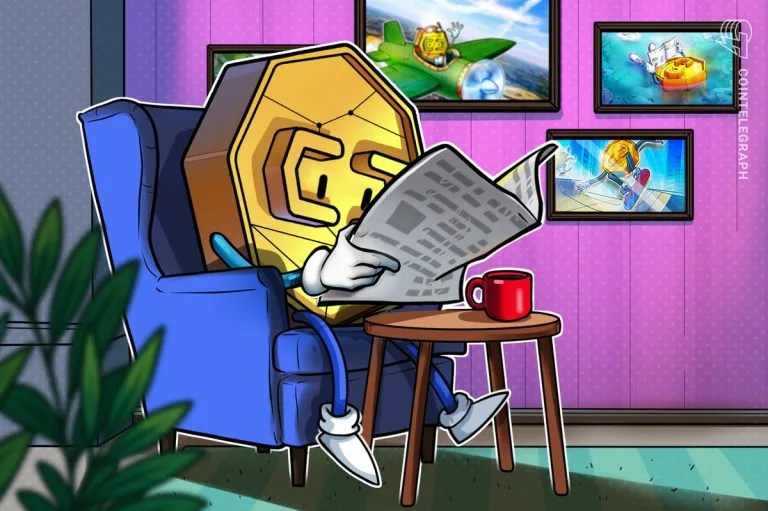This crypto update covers critical developments for developers, NFT marketplaces, and the future of tokenized securities.
Key Takeaways
- Tornado Cash developer Roman Storm has issued a warning to open-source developers regarding potential retroactive prosecution by the U.S. Department of Justice (DOJ).
- NFT marketplace OpenSea is evolving into a universal platform for trading all on-chain assets, not just NFTs.
- Ondo Finance has urged the U.S. SEC to delay or reject Nasdaq’s proposal for trading tokenized securities, citing a lack of transparency.
Roman Storm Warns Open-Source Developers of Retroactive Prosecution
Tornado Cash developer Roman Storm has cautioned open-source software developers, particularly those building decentralized finance (DeFi) protocols, about the possibility of facing retroactive prosecution from the United States Department of Justice (DOJ).
💡 The legal implications of Storm’s case could set a significant precedent for DeFi development.
Storm posed a direct question to DeFi developers on X: “How can you be so sure you won’t be charged by the DOJ as a money service business (MSB) for building a non-custodial protocol?” He emphasized the gravity of his situation, stating, “If the Southern District of New York (SDNY) can charge a dev for building a non-custodial protocol, who is safe? My case is still ongoing.”
📌 This ongoing legal battle highlights the evolving regulatory landscape for developers in the decentralized space.
The outcome of the Roman Storm case carries substantial legal implications for open-source software development within the United States. It has the potential to establish a dangerous legal precedent, as developers currently lack explicit protection from prosecution under existing frameworks.
✅ Understanding these legal risks is crucial for any developer in the DeFi ecosystem.
OpenSea Evolving into a Multi-Asset Marketplace
OpenSea CEO Devin Finzer has clarified that the company is not pivoting away from non-fungible tokens (NFTs). Instead, he explained that the marketplace is undergoing an evolution to become a comprehensive platform for trading all types of on-chain assets.
📍 This strategic shift aims to capture a broader segment of the digital asset market.
Finzer announced on X that OpenSea’s trading volume in October surpassed $2.6 billion, with over 90% of this figure stemming from token trading. He described this as the dawn of the platform’s transformation into a venue designed to trade everything.
⚡ The ambition is to become the go-to interface for the entire on-chain economy.
Finzer stated, “We’re building the universal interface for the entire onchain economy — tokens, collectibles, culture, digital and physical.
📊 The goal is to allow trading of any on-chain asset seamlessly, irrespective of the blockchain , while ensuring users maintain full control.
Originally launched in 2017 as a pioneering platform for NFTs, OpenSea dominated the market until early 2023. Its market share was impacted by a broader NFT market downturn and the emergence of strong competitors like Blur.
💡 This strategic redirection could help OpenSea regain its dominant position in the evolving digital asset landscape.
Ondo Finance Urges SEC to Review Nasdaq’s Tokenized Securities Proposal
Ondo Finance has formally requested the U.S. Securities and Exchange Commission (SEC) to either delay or outright reject Nasdaq’s proposal for trading tokenized securities. The company argues that the plan lacks sufficient transparency and could confer an unfair advantage to established market participants.
✅ Ensuring a level playing field is critical for the healthy growth of tokenized markets.
In a letter submitted to the SEC, Ondo Finance detailed its concerns, pointing out that regulators and investors cannot adequately assess Nasdaq’s proposal without public information on how the Depository Trust Company (DTC) will manage blockchain-based settlements. The DTC is the primary depository for U.S. securities and plays a crucial role in their post-trade settlement processes.
📌 Transparency in settlement mechanisms is paramount for institutional adoption of tokenized assets.
While acknowledging Nasdaq’s initiative towards tokenization, Ondo expressed caution. The company highlighted that Nasdaq’s reference to non-public information suggests a potential for differential access, which could prevent other firms from providing meaningful feedback.
⚡ The current proposal implies a lack of open dialogue, hindering fair comment from the wider industry.
Ondo Finance further noted that Nasdaq’s rule change cannot be implemented until the DTC finalizes its associated system. Therefore, they argue, there is no immediate urgency to approve the proposal, and delaying a decision until more features are available would be reasonable. The company urged the SEC to prioritize open collaboration and transparent standards before making any final judgment.
💡 A phased approach, focusing on transparency and open collaboration, is essential for robust regulatory frameworks.
This letter from Ondo Finance is a response to Nasdaq’s filing with the SEC on September 8, where the stock exchange sought to amend its rules to permit the trading of tokenized securities. Tokenized shares represent digital versions of traditional stocks recorded on a blockchain.
Fundfa Insight
The crypto space is witnessing significant regulatory scrutiny and strategic industry shifts. Developers face increasing legal uncertainties, marketplaces are expanding their offerings beyond niche assets, and traditional finance is exploring blockchain integration with crucial calls for transparency.

